THE ANSWERING MACHINE
























Plot
The Answering Machine follows a young opera singer from Berlin as she struggles beneath the weight of her family’s expectations, the unforgiving demands of the opera world, and the darkness festering within her own psyche. What begins as a pursuit of perfection becomes a harrowing descent into fear, self-doubt, and fractured identity. As her sense of reality unravels, music — once her refuge — morphs into both her torment and salvation.
A singer..betrayed by music.
A silent scream.
A nightmare.
A singer consumed by her own sound.
Untuned
Unvoiced
Uncomposed
Production Team & Cast
Production Team
Director: José Cortés
Screenplay: José Cortés, Steffen Küster, Juliane Gabriel
Producers: Ulfa von den Steinen, Alexej Mend
Music: Paul Roßmann
Sound Design: Theodor Petrea
Director of Photography: Martin Kauztsch
Editor: Eduardo Melara
Production Design: Oliver Burkhardt
Executive Producer: Mark Lübke
Costume Design: Linda Rodenheber
Light Design & Color: Martin Siemann
Presented by Labyrinth Pictures
Cast
Ivon Mateljan
Thomas Quasthoff
Ana Fonell
Friedrich Richter
Maria Urbanovich
Corrinne Crewe
Max Nattkämper
Danielle Daude
Christian Cartillone
Enrique Lütke Zutelgte
Reviews
Each gesture, each pause, feels choreographed to the rhythm of loss. The film becomes less a narrative than a composition: a cinematic sonata in minor key, written for light, breath, and the trembling of human will. Cortés’s direction balances the cerebral and the sensual with remarkable poise. His camera neither intrudes nor embellishes; it watches, almost reverently, as the performer slowly sheds her mask—her art and her suffering merging into one. The editing is musical — cuts arrive like inhalations between verses, allowing emotion to resonate in the air.
There is a deliberate theatricality here, as if the frame itself were a proscenium arch; but instead of distancing us, it transforms the screen into an intimate confessional where performance and truth become indistinguishable. Ivon Mateljan’s portrayal is nothing short of alchemical. Her face becomes a terrain of micro-expressions, every flicker of doubt or resignation caught in chiaroscuro light.
Beneath its minimalist exterior, The Answering Machine is a meditation on the existential cost of artistry. Cortés refuses sentimentality; he offers, instead, revelation. The film suggests that creation is not simply an act of expression, but an act of endurance — a way of surviving the silence after the curtain falls. In that silence, Cortés achieves what few filmmakers dare: he transforms solitude into symphony.